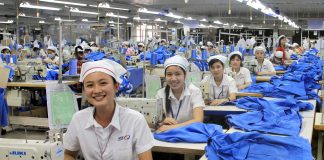More than one in five firms in Singapore are actively considering cutting their workforce as a result of the COVID-19. A survey by insurance broker Aon, found 21 per cent of firms in the city were looking at making redundancies, while 4 per cent had already done so.
The survey, which took in 1,889 organisations around the world, including 196 in Singapore, also found that slightly more than 10 per cent of companies had asked employees to take pay cuts on a voluntary basis and a similar proportion had made involuntary pay cuts. In general, about a third of firms were cutting pay across the workforce and executive officers were the most affected, said Aon, which carried out the survey between April 7 and 10.
Singapore uses convention centre as hospital for coronavirus patients as cases surge
Meanwhile, 8 per cent of firms had granted unpaid leave to employees and a further 21 per cent were considering that option. The news comes as data released on Wednesday by the Ministry of Manpower showed total employment in the city state in the first quarter of the year – excluding foreign domestic workers – had dropped by 19,900, mainly due to a reduction in foreign employment. This was the sharpest contraction since 2003, when severe acute respiratory syndrome (SARS) hit the country.
Selena Ling, head of treasury research and strategy at OCBC Bank, described the ministry’s figures as “harbingers”, saying more lay-offs were expected in the second quarter. Ling said a jobs support scheme introduced by the Singapore government could help ease short-term pain as business owners received 75 per cent co-funding for local employees’ wages. But such relief would end in May for most firms that were not in the worst-hit sectors, such as aviation or tourism. “If the circuit breaker is not lifted on June 1 or the government assistance is not extended beyond May, then the smaller firms may see renewed pressure from both the Covid-19 pandemic and demand shock, and possibly still lay off workers down the road,” she said, referring to the partial lockdown that has shut most businesses and schools. Ling said retrenchment would be the last resort for businesses after exhausting all other means of cost-cutting.
Aon found that in the span of three weeks between March and April, the number of companies in Singapore delaying or cancelling pay raises for their employees had risen from 8.2 per cent to 20.4 per cent. However, this was still lower than elsewhere in the world. The figure increased from 14 per cent to 32 per cent in North America and from 17 per cent to 35 per cent in Europe.
Of the Singapore companies surveyed by Aon, 30 per cent had implemented hiring freezes; 6 per cent had delayed hiring approaches or identifying candidates for recruitment; 46 per cent went for “very selective or cautious” hiring and did it only to replace critical roles. However, 16 per cent reported no change in hiring patterns and 1 per cent said they had accelerated hiring.
Jeff Ng, senior treasury strategist at Hong Leong Bank, said the overall situation remained fluid but companies would soon be forced to make job-cutting decisions based on their medium term outlooks. “Unemployment is a lagging indicator and may only peak in coming quarters,” he said. Ng added, however, that some sectors could see faster recovery from the pandemic, such as the IT, communication, health care and education sectors, and employers could see this as an opportunity to invest in training and to retain employment when pent-up demand returns.
CNA





















